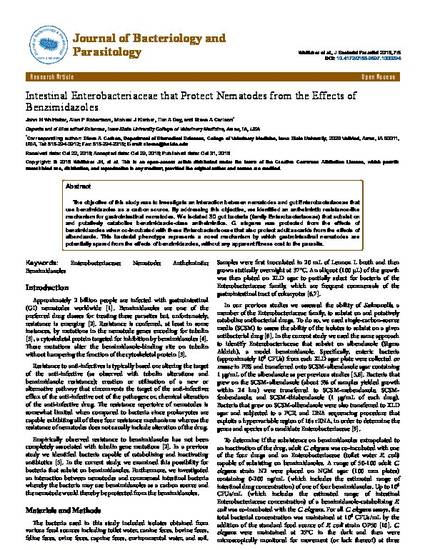
The objective of this study was to investigate an interaction between nematodes and gut Enterobacteriaceae that use benzimidazoles as a carbon source. By addressing this objective, we identified an anthelmintic resistance-like mechanism for gastrointestinal nematodes. We isolated 30 gut bacteria (family Enterobacteriaceae) that subsist on and putatively catabolize benzimidazole-class anthelmintics. C. elegans was protected from the effects of benzimidazoles when co-incubated with these Enterobacteriaceae that also protect adult ascarids from the effects of albendazole. This bacterial phenotype represents a novel mechanism by which gastrointestinal nematodes are potentially spared from the effects of benzimidazoles, without any apparent fitness cost to the parasite.
Available at: http://works.bepress.com/michael-kimber/31/

This article is published as Whittaker JH, Robertson AP, Kimber MJ, Day TA, Carlson SA (2016) Intestinal Enterobacteriaceae that Protect Nematodes from the Effects of Benzimidazoles. J Bacteriol Parasitol 7:294. doi: 10.4172/2155-9597.1000294. Posted with permission.